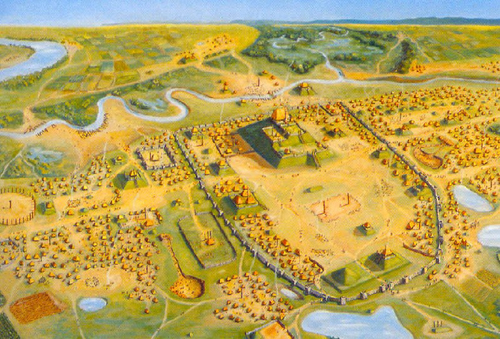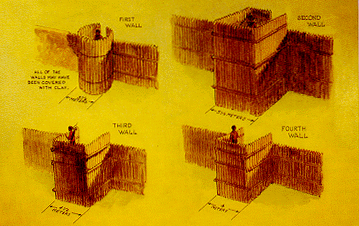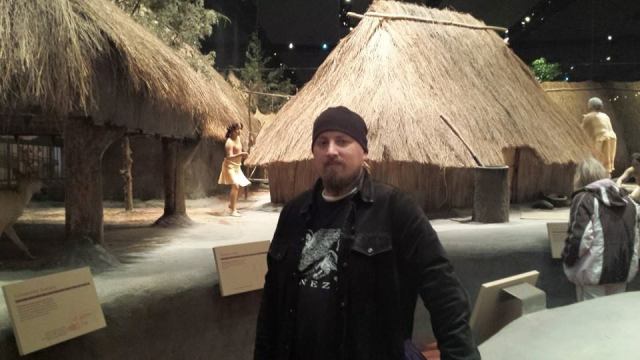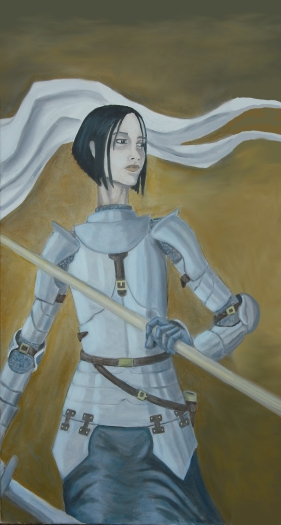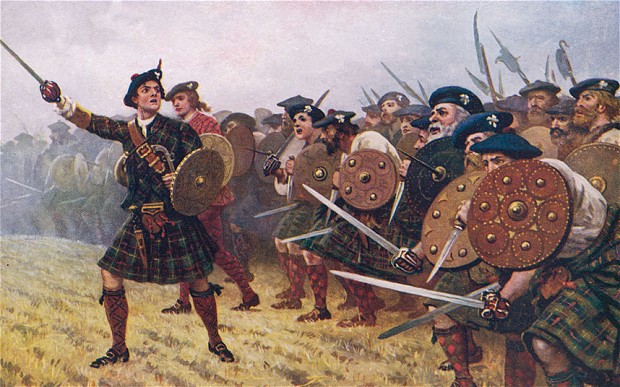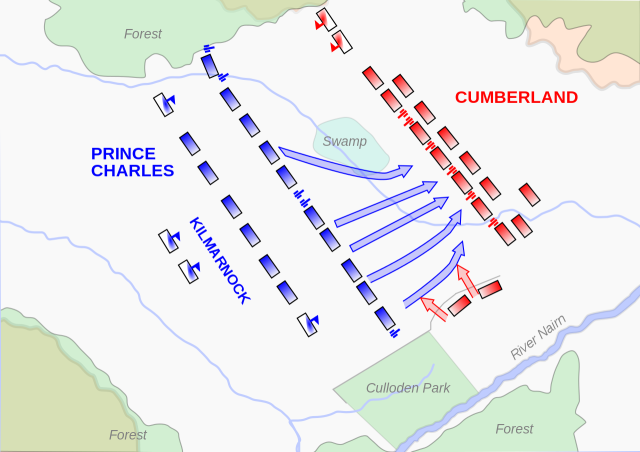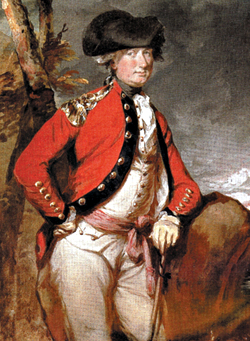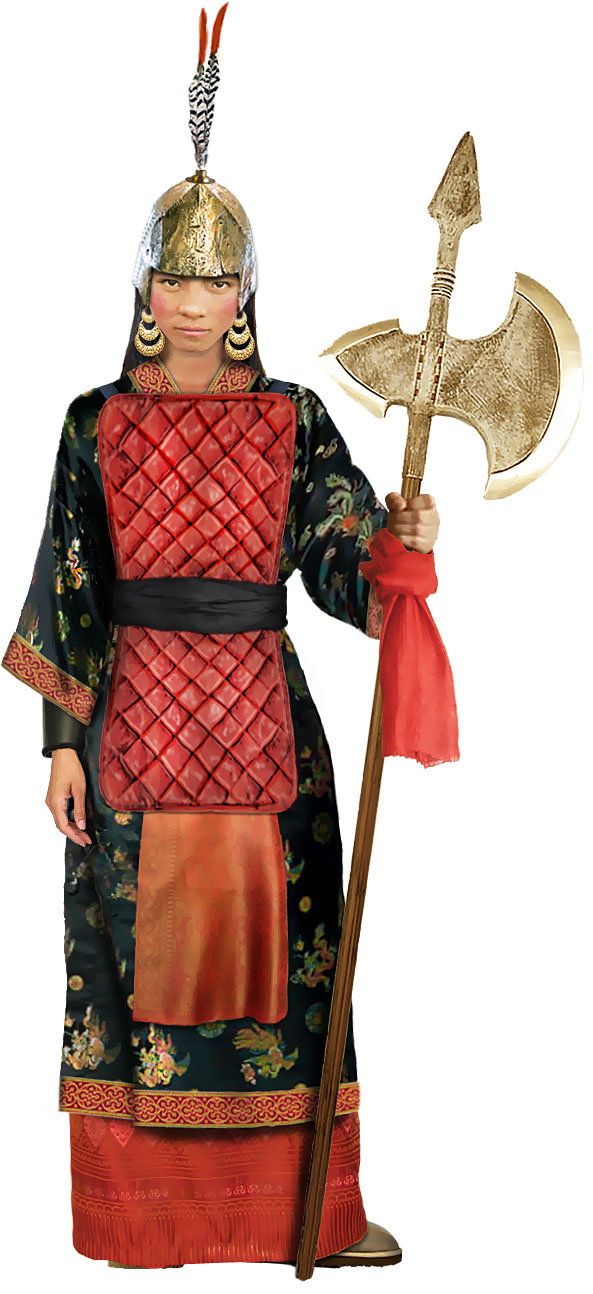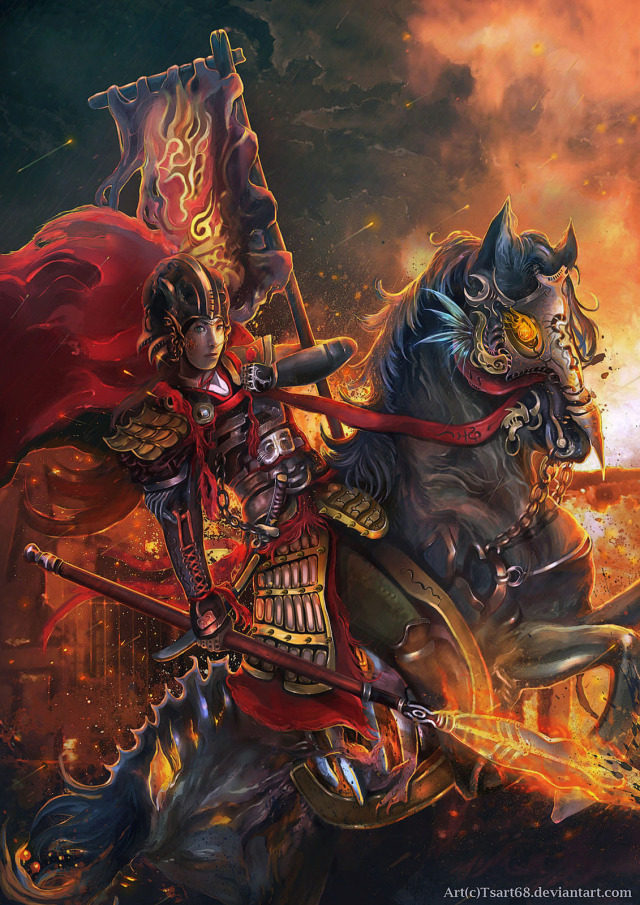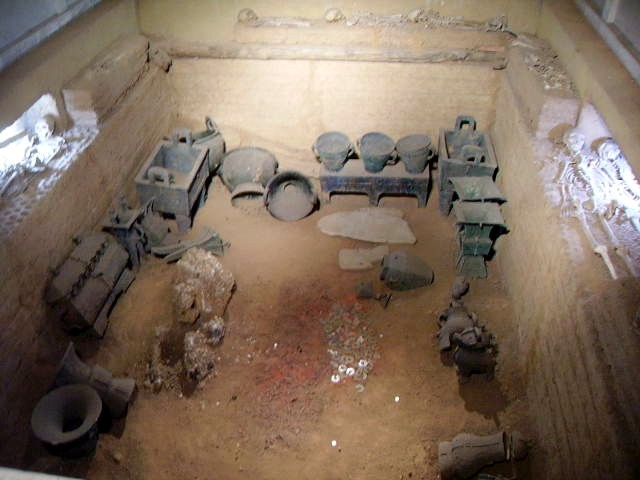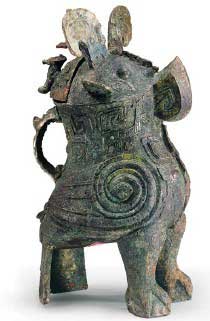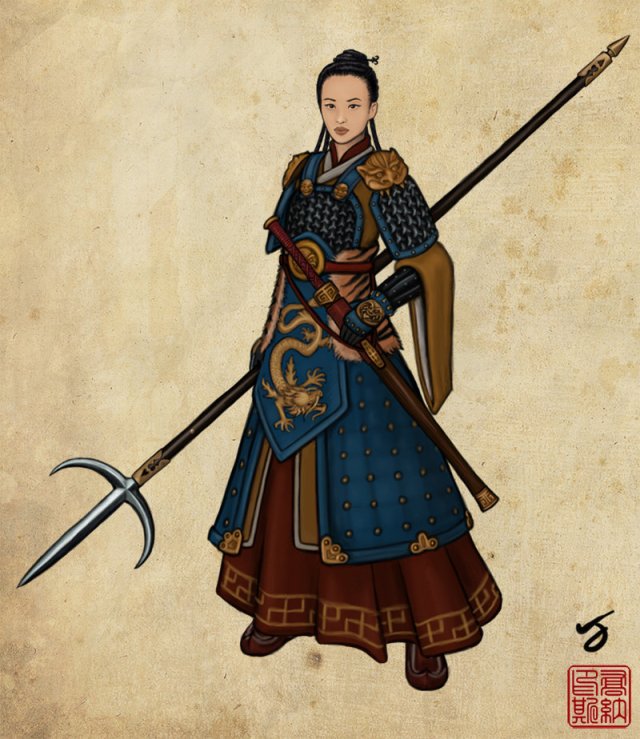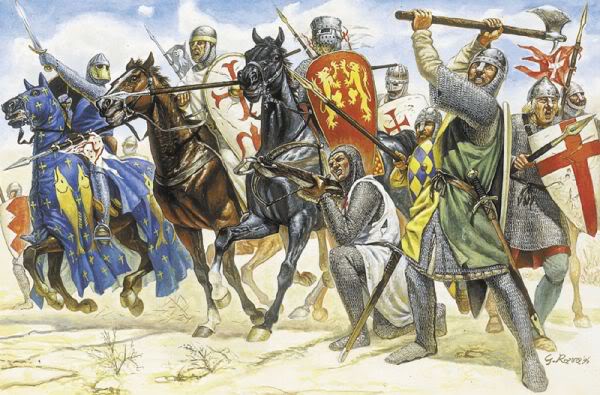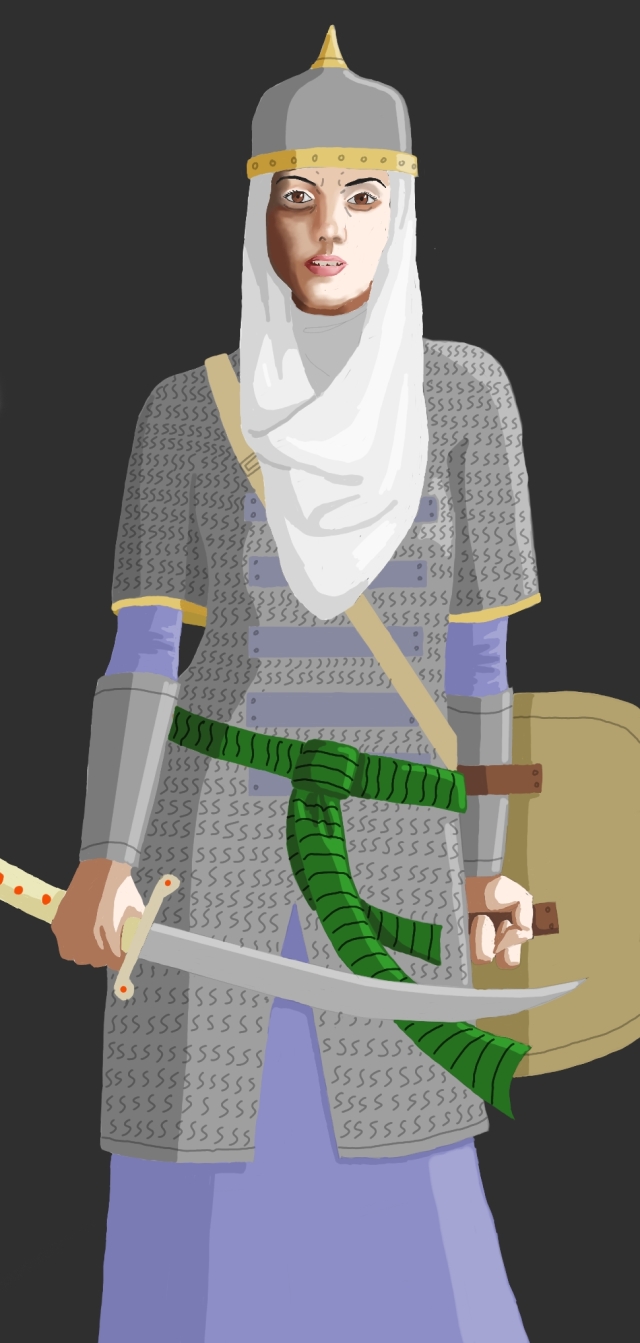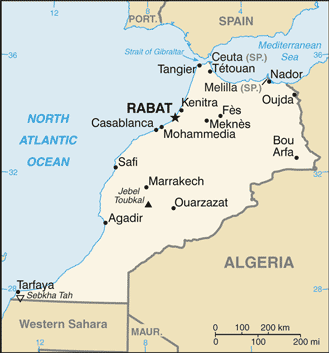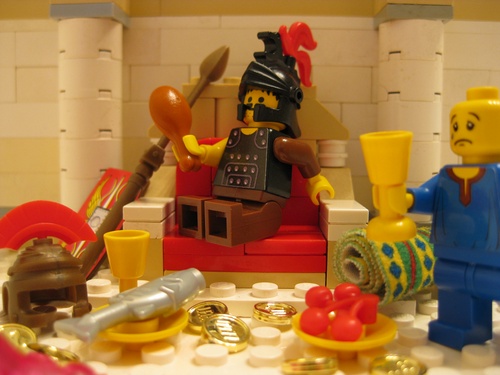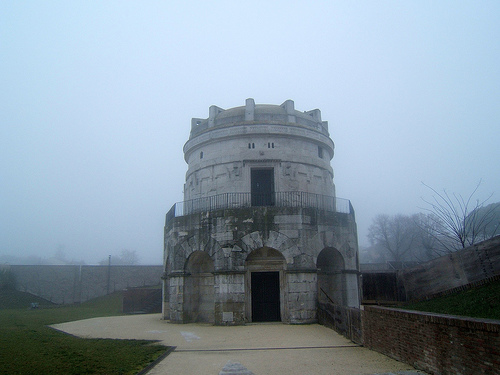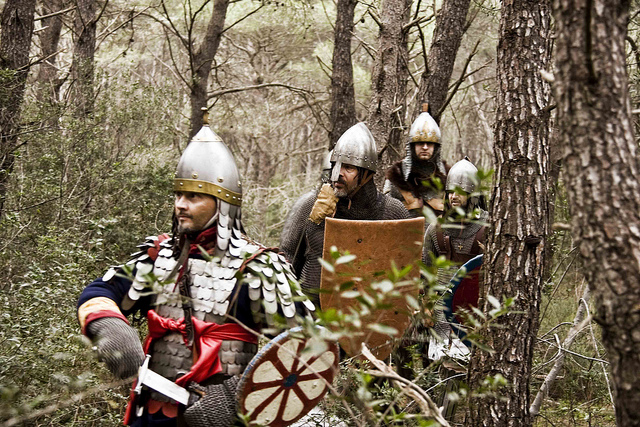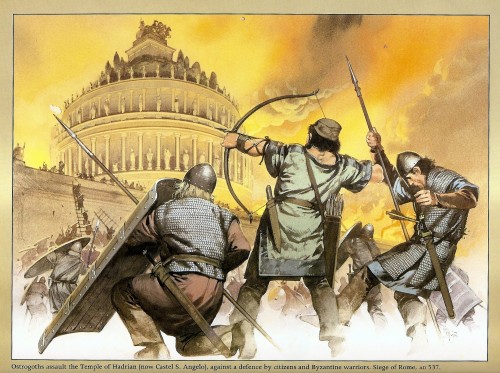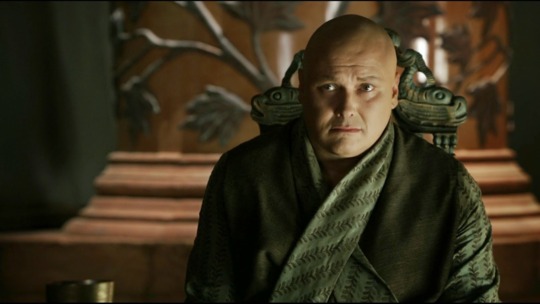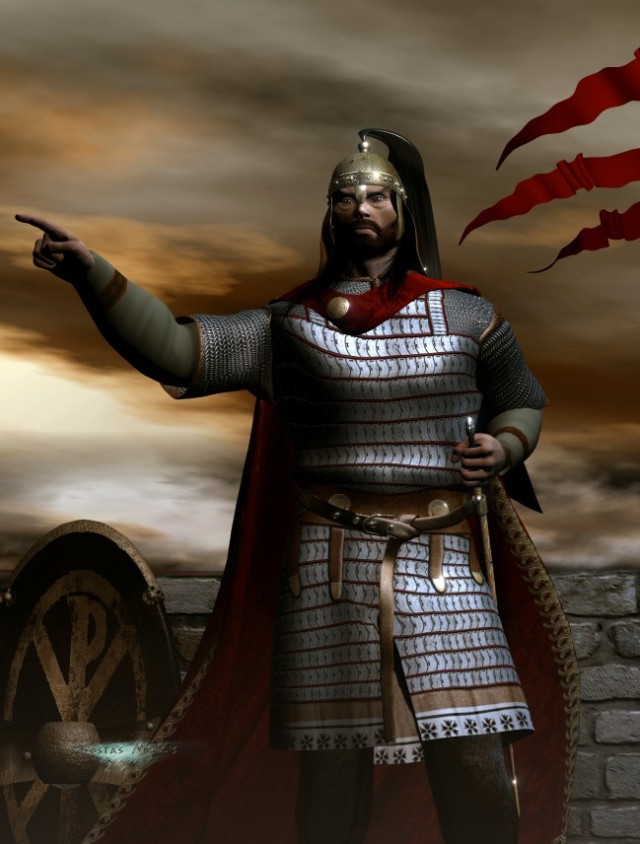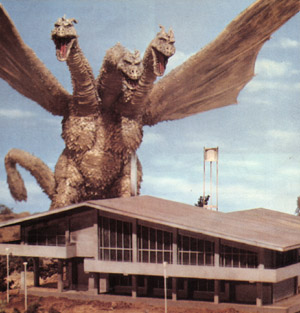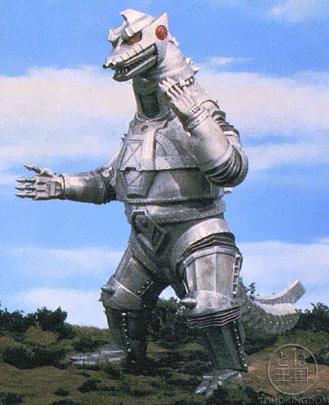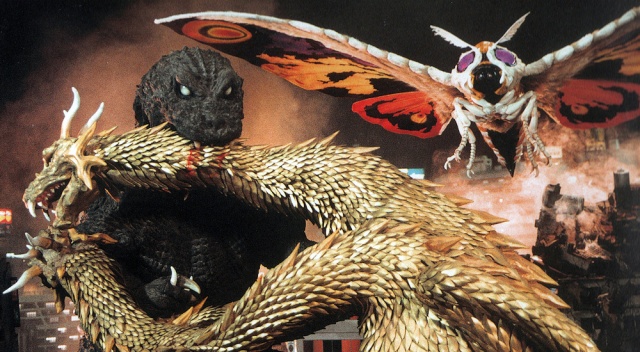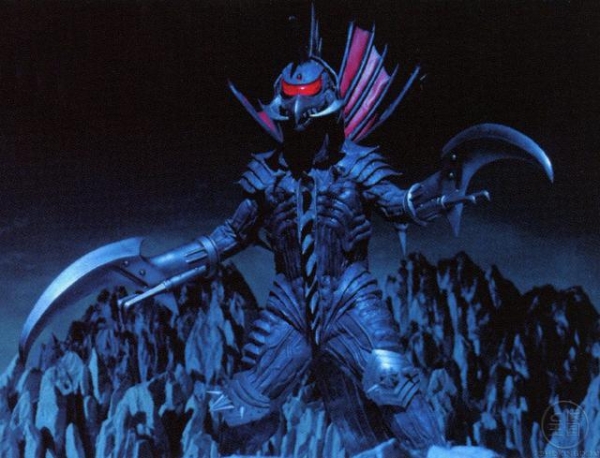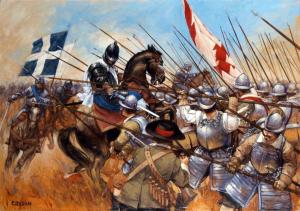
Stay tuned to find out what’s going on with all this craziness. I’ll give you a hint, it’s one of the most pointless and destructive wars since the invention of the 20th century.
Anna Komnene – Welcome to another exciting episode and we have one of the most horrible and destructive wars in European history.
Gaspar – And that’s saying something.
Anna – Gaspar, what are you doing in Zach’s chair?
Gaspar – Well, he’s busy getting married so I figured I’d fill in.
Anna – Wonderful. Can you believe he didn’t want a traditional Orthodox marriage?
Gaspar – He didn’t want a Catholic one either.
Pine Leaf Woman – Or a Crow wedding.
Olga – Or Russian.
Gaspar – You threatened to have him buried alive.
Olga – Olga is good at weddings.
Gaspar – Yeah, Red Weddings.
Anna – What religion is he? Some heretical cult?
Gaspar – Mor…Mormo’s? Something like that.
Pine Leaf Woman – Mormon, I think.
Anna – So, the Thirty Years War.
Gaspar – The Thirty Years War was a conflict between the cyborg forces of Arch Bishop Rouchelle and Elector Count Von Terwowitzki. The cyborg army tore across northern Italy and besieged Bucharest for thirty years until the Holy Roman Emperor sacrificed all of his necromancers to return all his dead soldiers into…. what?
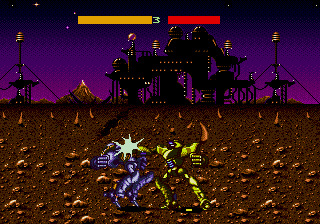
Anna – Just stop. Please stop. I’ve never killed anyone and I don’t wish to start now.
Pine Leaf Woman – I wanted to hear what happened next.
Anna – To understand the Thirty Years War, we have to understand how it started. Like WWI, it’s a convoluted mess that doesn’t show humanity’s best side.
Gaspar – this is why we can’t have nice things. It’s a war about religious intolerance, greed and political ambition.
Pine Leaf Woman – So, business as normal for you Europeans.
Anna – Unfortunately. The war took place mostly in Germany and involved armies of ruthless mercenaries that rapped and pillaged their way across the countryside. First, let me explain the Holy Roman Empire.
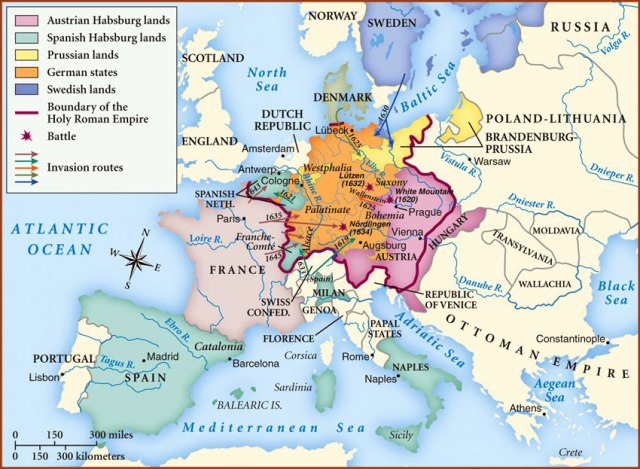
It was made up of a thousand semi-independent duchies, lordships, cities and baronies. Everything from the countries of Austria and Hungary to small towns.
Gaspar – It wasn’t Holy, Roman…
Anna – Shut up.
Anna – Not only were all these semi-independent countries scrambling for political power and being influenced outside powers, they were also divided by religion. There were Catholics, Lutherans and the newcomers, the Calvinists. And they all hated each other. The highest ranking nobles were called Elector Counts and they were the ones that voted for the Holy Roman Emperor. The Holy Roman Emperor didn’t have any real power and it was more like a crazy cat lady trying to herd quarreling felines.
As our story begins, there’s a very fragile peace between the different religions. The Emperors were traditionally Catholic and they had a tendency to not let the other religions practice their beliefs. Many of the counts had converted to Protestantism and pushed back against the catholic leaders.
And to add to the confusion, many of the lands within the Empire were owned by the powerful family, the Hapsburgs. This same family also owned Spain and parts of Italy. They owned countries like personal property. The Spanish/Catholic Hapsburgs really did not appreciate that their German cousins allowed different religions to exist in their lands. These same Hapsburgs really wanted to get the Dutch Republic back under their control. They had revolted and another fragile peace existed. Everyone knew the Spanish were just biding time until they could invade the Republic again.

Here’s a Hapsburg. You, um…may notice his chin and under-bite. Yeah, the Hapsburgs had a habit of marrying close relatives. It didn’t go so well for them after a few generations.
Pine Leaf Woman – So it went back and forth with the different religions fighting for who would be top dog. Well, as this was going on the Emperor, Matthias would die without leaving an heir…a silly way to run a government if you ask me. So, before he died he named his cousin, Ferdinand as the next Emperor. Three was a problem though.
Gaspar – Ferdinand was vampire. At night he would venture out and create more vampire spawn that would spread across the Germanic countryside. Ferdinand created a new Vampire aristocracy that ran things from the shadows.
Anna – No, he was very intolerant of Protestants.
Gaspar – I like my story better.
Anna – Well, they can’t be worse than Arian Christians. Long story, but Ferdinand was elected as Emperor. The Hussites (remember those guys) in Bohemia were always religious reformers and didn’t like this guy at all even though they were Catholic. In fact, they threw Ferdinand’s officials out a window in a not-so-subtle demonstration of their opinion and soon the entirety of Bohemia was in open revolt.
This was the start of the Thirty Years War.

Emperor Ferdinand just doesn’t like life and wants to give up on life because of those pantaloons.
Olga – Oh, good good. The killing begins, dah?
Anna – No, not good. At all. One of the worst, most pointless wars ever is about to occur. The Bohemian revolt only grew and spread to neighboring countries. It was as if all the pent up anger and hatred over religion finally burst. Ferdinand called on his cousin, the king of Spain to come lend assistance.
Pine Leaf Woman – Makes sense. Get into trouble, call your tribe. But then the rebels went looking for allies and found the Protestant Union led by a man that was also in line to be Holy Roman Emperor….you know, that’s a really unnecessarily long name. I’ll just call them the HRE. Anyway, the name of this man was Fredrick V. They promised this Fredrick that he would be king of Bohemia if he helped them in their revolt. The problem was, they promised this same thing to several other princes of Europe and when this became public, support for the rebels went down like Greece’s GDP.
Anna – In spite of this, the rebels did get support from other German countries, mostly in Austria and the rebellion grew.
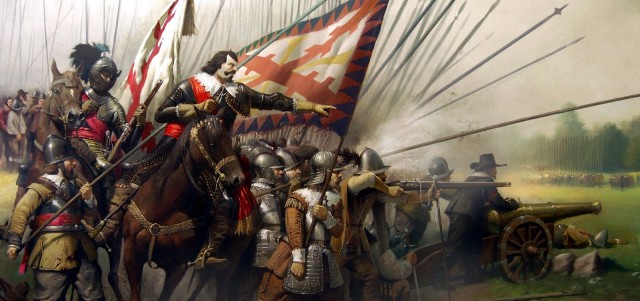
primitive guns, heavy armor and pikes. All very traditional requiring less training than shield walls and bows but more training in unit cohesion and tactics.
Gaspar – This revolt spread outside of Germany. Elizabeth Stuart in England had people rally to her and in Transylvania a prince with the help of the Ottoman Empire launched attacks against Catholic countries. Frederick went to the Ottomans for more direct support and the Ottomans offered cavalry and attacked Poland which was supporting the Catholic Hapsburgs. Their war went back and forth with no clear winner.
Anna – Thank you, Gaspar for sticking to actual history. Finally the Holy Roman Emperor moved his forces to counter the rebellion. And at the battle of Sablat in 1619 he defeated the Protestant Union. Then the Spanish joined the war along with the Saxons creating an even bigger mess. Soon it seemed all of Central Europe was at war with armies stomping all over peasants’ farms. Instead of tightly controlled field battles where one army forces another army off the field and declared victory, we have the emerging theory of total war. No more honorable lords looking for the enemy general, instead we had armies and bands of mercenaries that were paid by whatever loot they could pillage. They massacred towns and stole entire crops from villages leaving the people starving in famine. Armies got larger, which cost more money and bankrupted entire countries. Also, the larger armies were harder to control which led to more criminal acts and bands of villains roaming the countryside.
Gaspar – Another change in military affairs was that the armies grew more professional. The war lasted so long that government soldiers became an actual profession. The veterans passed down their knowledge and the manuevers grew more sophisticated and complex. The cavalry charges had to strike in conjunction with the gunners and retreat while the pikemen moved forward. All had to be timed just right to work.

They had arquebuses with heavy armor, powder charges and uniforms. The powder charges reminds Zach of his magazine pouches in Iraq.
Anna – At the Battle of White Mountain, Ferdinand’s armies invaded Bohemia and defeated the rebel forces near Prague. It was disastrous for the rebels and the Hapsburgs ended up keeping Bohemia until they inbred themselves out of existence.
Pine Leaf Woman – That’s kind of sad to have all that power…and lose it all because you married your first cousin. Well, the Hapsburgs moved in and confiscated property from rebel leaders and Protestants and were basically jerks. Under the thumb of the Catholics it was pretty much the end of the Hussites.
Gaspar – Sad. I kind of liked them.
Olga – I like them too. They shoot many things.
Anna – This begins a new phase of the war. The battles get a little smaller as the Spanish and other Catholic armies try to invade rebel territory. The Dutch enter the war in greater force bringing their highly trained armies.
Gaspar – So, basically we have all these armies going all over the place from Italy, to Austria to the Netherlands.
Anna – A very abbreviated version, but not wrong. This slow grind of a war eventually wore down the Protestant rebellion and at the battle of Stadtlohn they finally broke the rebellion’s back.
Pine Leaf Woman – It should all be nice and peaceful now, right? Wrong. Because you Europeans are allergic to peace, the Huguenots in France decided to rise up in rebellion.
Anna – The previous French King, Henry IV had liked Protestants because he used to be one. The Treaty of Nantes protected people’s rights to worship. But the new king, Louis XIII wasn’t so open minded. Louis began persecuting them and in response the Huguenots armed themselves and formed into militias to protect themselves. They also formed their own military structure and eventually their own government that tried to negotiate with foreign powers. The leader of the Huguenots was named Duc de Rohan and he wanted open war with the French crown.
Pine Leaf Woman – Too bad that this rebellion was not edifying for either side. Both the Crown and the rebels committed many atrocities and massacres. When both sides got tired, they drew up a treaty with no winners.

Cardinal Richelieu at the siege of La Rochelle. He wasn’t king, but he basically ran everything. He’s not impressed with the rebels.
Anna – The war in the Netherlands grew hotter as the Spanish troops tried to reestablish control over what they considered a rebel province much like how the modern Chinese consider Taiwan. Now, though the Hapsburgs and the French were both Catholics, the French didn’t want the Spanish gaining more power, so they began to help the Dutch against the Spanish. It wasn’t about religion, but politics. Even the Scottish sent down troops to fight the Spanish.
Gaspar – And then things got crazier. The Huguenots rebelled again, Poland was at war with Sweden and other rebellions and little wars erupted all over. This might be a good time to mention that the Thirty Years War isn’t one single war, but a whole bunch of smaller connected wars.
Anna – The Holy Roman Empire tried to bully the smaller countries and somehow found itself invaded by Sweden. The balance had swung in favor of the Protestants/anti-Hapsburgs.
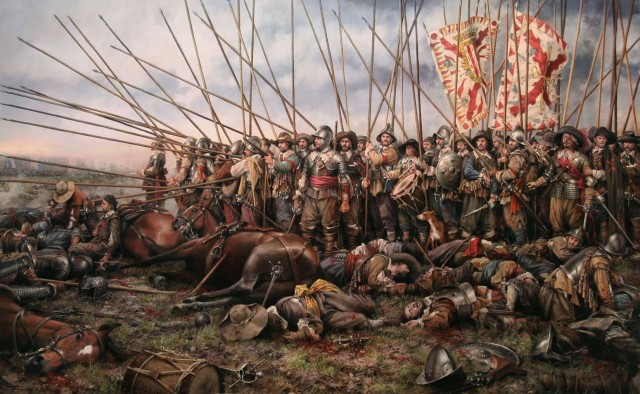
War waged all over Europe and almost everyone was involved. The English, the French, the Transylvania and the Polish. It was a pretty crappy time for everyone.
Anna – One thing to come out of all this constant warfare was that the Holy Roman Empire formed all the independent armies into one Imperial army. So no more private armies for all their little duchies and lordships.
The Spanish then invaded France and caused tremendous devastation. This part of the war went back and forth for years.
Gaspar – It was a meat grinder but the French then began to win. It was like an arm wrestling match when it goes on even for a long time, but then one man gets tired and it’s over pretty quick. It was one victory after another and France gained land from France on several fronts. The weakening of Spain made the rebels in Spain bolder and they broke out in open revolt.
Pine Leaf Woman – How many revolts have happened so far?
Gaspar – I’ve lost count.
Anna – But then Portugal rebelled and declared independence…supported by France of course. Another ill effect for the Spanish was that they now didn’t have an overland route to the Hapsburg lands in Germany. They were cut off except by sea. This made logistics for the war much harder. (Go the post about logistics and see how important that really is.)
By 1648 the wars were mostly over. (Except the war between Spain and France.) In this time, Frederick and Louis had both died and their children were leading the countries. The Swedes and Dutch moved into Germany and besieged Prague and even Vienna.
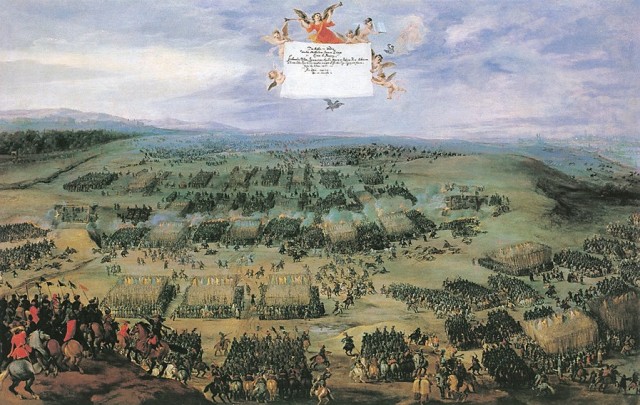
A good idea of how these battles looked. Squares of pikemen with gunners in the middle and cavalry charging in and out of the squares. It had to be tightly controlled or it wouldn’t work.
Anna – The war ground down and since it wasn’t just one war, it wasn’t just one peace treaty. The collection of treaties that ended the Thirty Wars was called the “Peace of Westphalia.”
Pine Leaf Woman – I assume all this fighting and struggle was for something great.
Anna – No. Not really. In fact, many parts of Europe were devestated and even depopulated. There was a massive reduction in population and the countries involved found themselves poor and in debt. Many say that the male population in Germany was reduced by 50%. Thousands of castles were destroyed, many more thousands of villages were wiped off the map and plagues were spread all over the continent.
Pine Leaf Woman – Oh, joy. Sounds like such a wonderful time.
Gaspar – So, Spain was really weakened and had lost Portugal, territory and ships to go over to the New World. The Dutch gained their independence and Bavaria was basically depopulated.
Anna – Hold on, there was one more thing that came out of this war.
Gaspar – Witch hunts.
Anna – No. Well, yes, but that’s not what I’m talking about.
Gaspar – The suffering caused witch hunts.
Anna – Shut up. I’m talking about Nationalism. The Peace of Westphalia established clearer national boundaries and peasant’s loyalties were now more to the central government and not whatever local lord was nearby. Also, everyone was so utterly disgusted with how cruel and murderous the mercenaries were that the countries increased their national armies so they wouldn’t have to use mercenaries again. This was the end of vast mercenary armies marching across Europe, a fact of life that had existed for nearly a thousand years.
Pine Leaf Woman – So, thirty years of untold death and destruction and not much good happened.
Anna – Pretty much.
Olga – Dah, that is very good!
Gaspar – Wait, you are forgetting the most important result of the war!
Anna – Do tell.
Gaspar – The secret society of immortals, the Vashtanti were overthrown by the secret Catholic squad of assassins. With their tyranny overthown, the common people were now free to worship the ancient gods in the forest and open trade with the Dryads there.
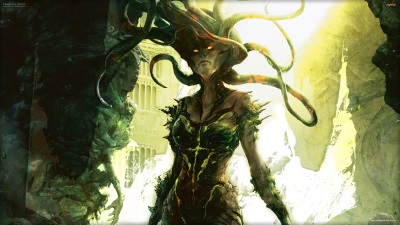
The Dryads had waged a two thousand year war against the immortals and with their….what?
Anna – Gaspar, just shut it.

Zach is busy figuring out his whole wedding thing, but he says you should ‘check out’ his history book and post apocalyptic novel with a sequel coming out soon. And don’t forget to friend us on Facebook. We have many meaningful discussions there.
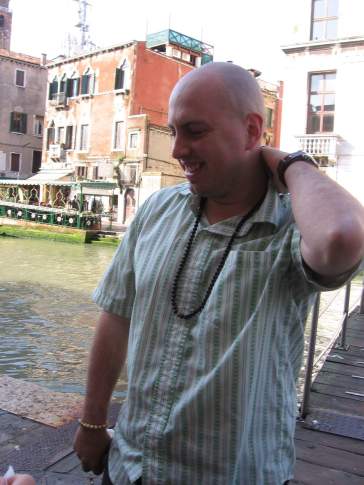 Zachary Hill passed away suddenly and unexpectedly the morning of January 15th, 2016. He leaves behind his sweet young bride of almost a year, Mackenzie Hadlow Hill.
Zachary Hill passed away suddenly and unexpectedly the morning of January 15th, 2016. He leaves behind his sweet young bride of almost a year, Mackenzie Hadlow Hill.
